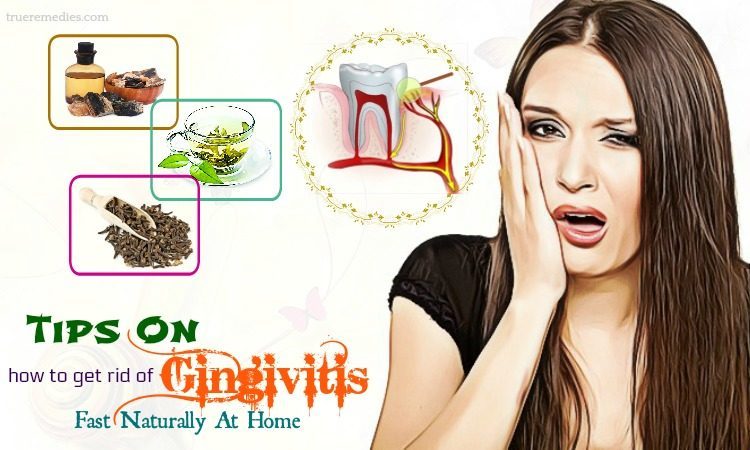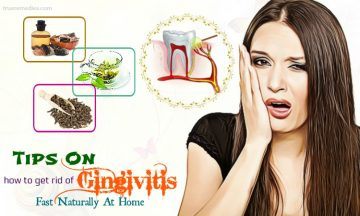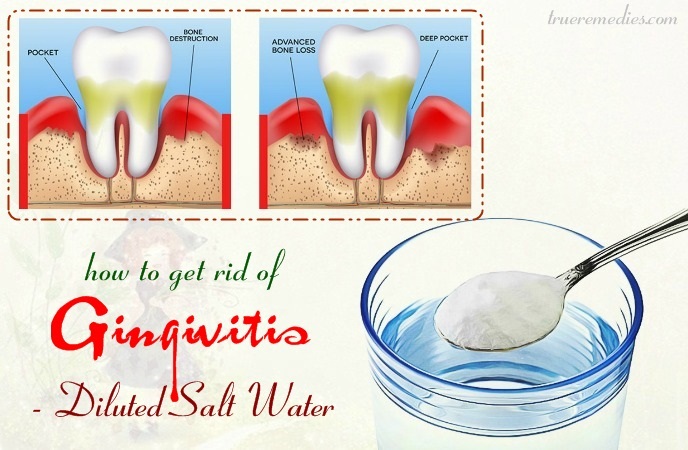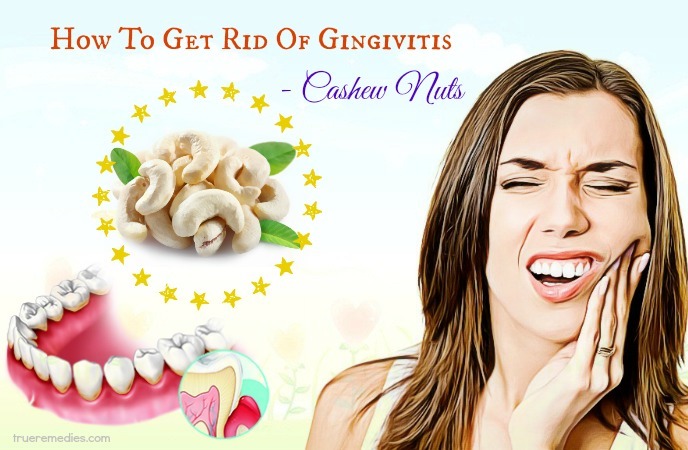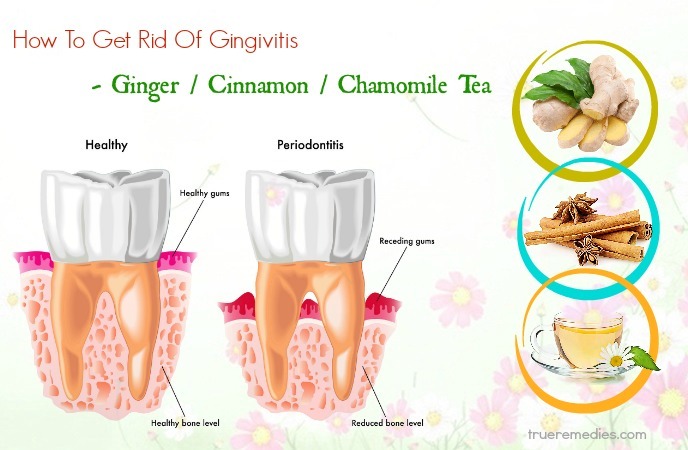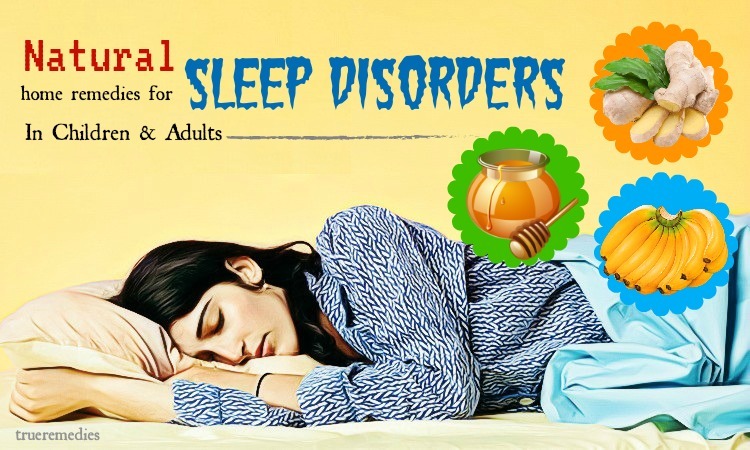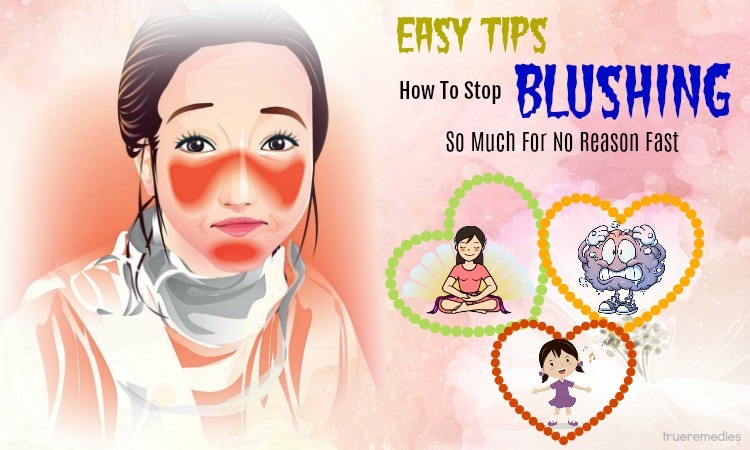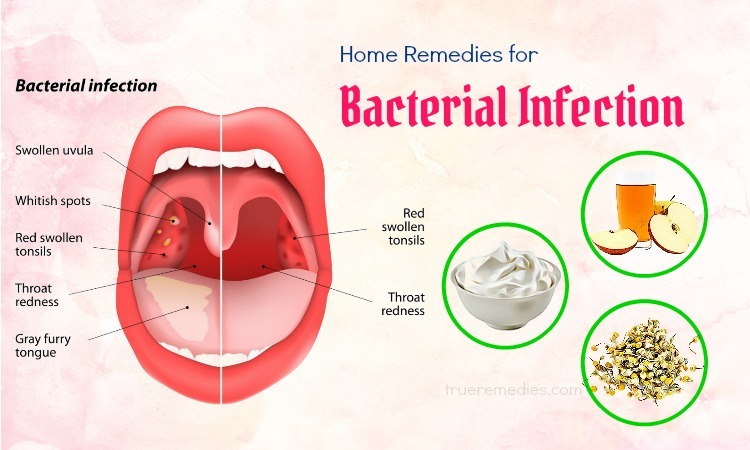Updated: 11/16/2019
Contents
Gingivitis is a very common condition. Most people encounter it at least once in their lives. Today, this situation tends to increase. Gingivitis does not have a direct impact on health, but if not treated promptly and thoroughly, it will leave many severe consequences for the teeth.
Many people think that they do not have much knowledge about dentistry so they always go to see dentists whenever they have dental problems, including gingivitis. This wastes a lot of their time and money. For that reason, we write this article to help you treat gingivitis at home. But first, let's take a look at some basic information about this condition.
What Is Gingivitis?
Gums are the mucosal tissues that cover the upper and lower jaw in the oral cavity. They surround the teeth and keep the teeth covered. Unlike soft tissues on the lips and cheeks, most gums are tied closely to the underlying bones that resist friction of food on them. So, when healthy, the gums protect the tissues better. Healthy gums are usually pink and they may contain melanin [1].
Gingivitis is an inflammatory condition of the gums with specific manifestations of inflammation (swelling, heat, redness and pain). This is the first stage in the chain of symptoms of dangerous periodontitis. When gingivitis is mild, the gums may swell and bleed lightly. Bleeding can occur when you brush your teeth, or even when you have no impact on your teeth or gums. If not treated early, gingivitis will make the disease worse and progress to periodontitis. Then, inflammation can spread to the muscles and periodontal bone.
Periodontal disease and poor oral health can generally affect overall health. Associated studies indicate that the periodontal disease increases the risk of heart attack, stroke or lung disease. Pregnant women may be more likely to deliver prematurely or newborns with lower birth weights than women with healthy gums. Diabetes increases the risk of periodontal disease and other infections. In contrast, oral infections make it difficult to control blood glucose levels. If you have severe gum disease and have lung problems, breathing bacteria from your mouth into your lungs can lead to pneumonia. For that reason, you should not underestimate dental problems.
TrueRemedies Partner Solutions

Need a Help from the Leading Expert Online, Available 24/7?
They’re all here and ready to answer your questions online or by phone. Keep asking questions until you get the answer you need.
Is Gingivitis Contagious?
The answer is not sure. In accordance with the American Academy of Periodontology, the bacteria which cause gingivitis could be spread through sharing utensils, kissing, or other activities of exchanging saliva. Nonetheless, in fact, developing gingivitis depends on some extra factors, like your oral hygiene. It is always recommended not sharing toothbrushes or consuming utensils with other people with signs of gum disease [2].
What Are Common Causes Of Gingivitis?
Everyone can have gingivitis and the most common contributing factor is lack of attention to proper oral hygiene. The cause of gingivitis is mainly due to plaque or tartar that lasts long in the mouth. When plaque is not regularly cleaned, the bacteria attack the tooth roots and produce enzymes that destroy the binding of epithelial (connective tissue and teeth) and cause gingivitis. Here are the causes of bacterial growth in the mouth:
- Tobacco, Alcohol And Poor Diet
Tobacco, alcohol, sweets, too hot or too cold foods cause plaque on the teeth, which in turn facilitates gingivitis. Frequent eating of soft foods makes your teeth lazy and the structure of the teeth gradually weaken. Therefore, it is very susceptible to infection.
- Reduction Of Saliva
Some drugs (antidepressants, diuretics, histamine …) or diseases reduce salivation, causing dry mouth. Because there is no cleaning effect of saliva, plaque and tartar can accumulate more easily. This accumulation also increases the risk of decay. Drinking alcohol also reduces salivation. In addition, in some elderly people, when the gums and teeth do not fit, the food and plaque of the teeth will remain there.
- Changes Hormones During Pregnancy
There are many hormonal changes in women during pregnancy. According to the natural mechanism, this will reduce the resistance of the gums to the bacteria attached to the teeth. Then, gingivitis is inevitable.
- Genetic Factors And Weak Immune System
Bacteria that cause gingivitis are more harmful to some people than others. Those who are susceptible to the disease usually have inherited genetic diseases. Some diseases can weaken the immune system, leading to bacterial infections, including infections in the mouth. Leukemia and HIV cause the immune system to decrease. Therefore, patients with these diseases are also susceptible to gingivitis.
- Diabetes
People with diabetes cannot control their blood sugar well, making them susceptible to gingivitis. High blood glucose increases blood pressure, reducing the ability of the nutrient to transport nutrients. This makes the gums weak and susceptible tooth infection.
- Chemotherapy
One of the unwanted side effects of chemotherapy is that it causes swelling and bleeding, which is very painful. It also causes ulcers on the gums. Although you can handle these symptoms, the condition will not stop as long as you have chemotherapy.
- Other Causes
Some other causes can cause gingivitis, such as poorly spaced teeth, poor quality dentures, and some anti-epileptic medications.
What Are Common Symptoms Of Gingivitis?
You may get gingivitis if your body has the following symptoms [3]:
- Your gums are easy to bleed.
- You often have symptoms of mouth sores.
- Your gums are swollen.
- Bad breath.
- You feel pain when chewing.
- Your teeth are not strong.
- Your teeth become more sensitive than normal.
- There are many tartar plaques.
- You feel pain when brushing your teeth. You may also have some blood.
- The gums are pinkish purple.
- In severe cases, your gums may get sores and pus.
You may experience other symptoms not mentioned. If you have any questions about the signs of the disease, please consult your doctor.
Who Is At High Risk Of This Problem?
Anyone can get gingivitis. However, people who have bad oral hygiene habits are the most susceptible to this condition. This is a situation that they are almost impossible to avoid. In addition, people with diabetes, leukemia, HIV and pregnant women are also susceptible to gingivitis. For them, the cause of the problem comes from subjectivity.You can control this disease by minimizing risk factors. Please see your doctor for more information [4] [5].
When To See A Doctor?
You can diagnose and treat gingivitis at home. But if your condition is caused by tartar, you need to see a dentist. He or she will remove your tartar. In addition, the dentist may perform an X-ray to see if the disease spreads to the bone around the tooth. After cleaning your teeth, your dentist may recommend antibiotics if the infection is serious. Antibiotics can be used in the form of mouthwash, topical gel or prescription medication. In addition, you should also see a dentist if your condition is not improved after a period of time being treated at home. Then, you may have some complications of gingivitis.
There, you have discovered some information about gingivitis. If treated early and properly, this condition is quickly eliminated. Below, we present tips to help you do that. They have been tested for safety and effectiveness by many people. You can do it at home or whenever you have free time. It is time to find out tips on how to get rid of gingivitis symptoms fast naturally at home. Take a look at TrueRemedies.com!
Top 22 Tips On How To Get Rid Of Gingivitis Fast At Home
1. Diluted Salt Water
This is the first treatment in this list of tips on how to get rid of gingivitis at home. The use of toothpaste containing sea salt is helping to whiten teeth and improve enamel. Not only that, it also helps you effectively prevent oral bacteria. This means your gums are also well protected against bacterial attack. Besides the use of this kind of toothpaste, you can also use diluted saline to rinse your mouth. Then, salt water helps to clean the mouth. Gargling with saline is the way you are usually instructed whenever you have gingivitis, but it is still one of the most effective ways. Gargling with warm saline has the effect of dilating blood vessels, increasing blood circulation, increasing white blood cell counts, and eliminating bacteria and gingivitis. You can also use salt water to treat sore throat.
All you need to do is mix the sea salt with warm water, and then use this solution to rinse your mouth. The taste and temperature of the solution should ensure that the salinity and warmth are right for you. Salt water should be added to the bottle to use gradually. When used, add hot water to ensure warm temperatures are needed. You should rinse your mouth with salt water several times a day, especially in the morning and evening. Doing this after every meal is also essential. Keep applying this tip, even if your condition has improved. That helps to improve your oral health. Another way is to rinse with a mixture of fresh lemon juice and water for 1-2 minutes. This method is not as effective as salt water but it has a pleasant taste.
Note: After gargling with salt water, do not swallow it. This will harm your stomach. Please spit it out after 1-2 minutes gargle.
2. Clove
Among tips on how to get rid of gingivitis at home, this is one of the most effective. Many people know that clove oil helps to remove the stress. The aroma of cloves helps your spirit to relax, and assists you in regaining balance in life. A sufficient amount of clove oil will help you sleep better. In addition, clove contains many enzymes to enhance the ability of the digestive system. This helps treat digestive disorders and stomach pain.
However, very few people know that one of the most wonderful uses of localization is to curegingivitis. With effective anesthetic, analgesic and antiseptic, clove oil helps reduce the pain that gingivitis causes. In addition, due to the pathogenic bacteria are gradually eliminated, your condition will also be improved rapidly.
Besides eating clove leaves, you can also use clove oil to gently massage the affected gums. Do it slowly and gently if you do not want to make your gums worse. Initially, you will feel slightly burning and spicy, but then you will quickly feel better because cloves is an effective anesthesia. Please do this about 2-3 times per day to achieve the best effect.
3. Apple Cider Vinegar
This is another must-try treatment in this list of tips on how to get rid of gingivitis at home. Apple cider vinegar is a product of natural fermentation. It has a very strong antimicrobial properties. In addition, this naturally fermented vinegar can restore the pH balance in the mouth. Apple cider vinegar has many good ingredients such as amino acids, acetic acid, and many vitamins and minerals. Because of its high acid content, it is considered one of the most effective ways to treat dental problems.
To treat gingivitis, you can mix apple cider vinegar with water to gargle.Doing this 2-3 times a day, 1-2 minutes each time is what you should do.Not only that, you can create a special toothpaste with apple cider vinegar and baking soda. To do that, please apply these following steps:
- Mix baking soda and apple cider vineger to make a thick mixture
- Use this mixture to brush your teeth gently
- Finally, use the solution of vinegar and water as above to rinse your mouth
You should apply this way once a day. Note that due to baking soda is strong bleach, so as soon as your condition improves, you should only apply this way 2-3 times per week for oral hygiene.
4. Baking Soda
In accordance with pretigous studies, baking soda possesses antimicrobial and antibacterial properties, thereby decreasing infections.
As baking soda is alkaline in nature, it can neutralize the acids within mouth, thereby reducing the potential risk of gum disease and tooth decay. Also, baking soda could keep your mouth out of bacteria that could lead to dental cavities and plaque. It also cools down and soothe inflamed gums [6].
In addition to using baking soda as a simple tooth whitening toothpaste, you could take advantage of it to createa refreshing natural antibacterial mouthwasha with the combination of water.
What you have to do is:
- Fill a cup with plain water
- Add ¼ teaspoon of baking soda into and mix well
- Swish your mouth with this solution for 30 to 60 seconds
- Spit it out and wash it off with fresh water
- Repeat this routine regularly to get good results
Note:
Do not get baking soda on your teeth. Repetitive and multiple applications of baking soda could damage your tooth enamel.
5. Cashew Nuts
According to report, it was shown that using cashew nuts coud eradcate tooth abcess. In fact, cashew nut brings good results to acne, tooth decay, tuberculosis as well as pneumonia. Cashew nuts are particularly helpful for those with gingivitis caused by Gram negative bacteria. However, it should be noted that some cases of tooth infections are not the result of this bacteria. In such cases, cashew nuts will fail and there should be another appropriate strategy to consider.
Raw cashew nuts are taken directly from the cashew plant which has urushiol. This chemical is toxic upon ingested. The so-called “raw cashews” which are sold in the regular food stores are not precisely raw, but are steamed. The steaming process will release urushiol from nuts and make it safe for consumption. Do not eat cashew nuts picked right directly from the tree.
6. Cranberry Juice
Cranberry juice is renowned for the ability of prevention urinary tract infection (UTI) by preventing the bacteria from breaking into the bladder wall. This juice also holds the promise of naturally protecting the human teeth against tooth decay and gingivitis. It is thanks to the proanthocyanidins presenting in cranberry juice that helps to prevent bacteria from building a biofilm on the gums and teeth. Also, this juice has antioxidants along with anti-inflammatory properties, speeding up the healing process of swollen and bleeding gums [7]. And something in the cranberry juice can disarm the pathogens that result in tooth decay.
You just need to drink organic or fresh cranberry juice during the day. In case it is too acidic for your own teeth, you can dilute it with water and drink. From 2 to 3 glass of cranberry juice daily is a good dosage.
7. Mustard Oil And Salt
Inflamed gums will be soothed if you massage them with the mixture between mustard oil and salt. These ingredients have anti-microbial properties, thereby restoring the gum health [8] [9].
All you have to do is:
- Mix ¼ teaspoon of salt with 1 teaspoon of mustard oil
- Massage it onto your gums for 2-3 minutes by using your fingers
- After that, rinse your mouth with tepid water to eliminate oil traces
- Do this method twice per day to get good results
8. Cayenne Powder
Cayenne powder can relieve your discomfort caused by gingivitis while preventing gum problems through restricting the bacteria growth. Moreover, the capsaicin is considered a key component responsible for such effects [10] [11].
- Add a pinch of cayenne pepper onto your toothpaste
- Then, brush the teeth with it
- Repeat this routine daily to get faster results
9. Alum
Among homemade tips on how to get rid of gingivitis, alum gargling is little known but works well. Alum is a class of chemical compounds consisting of selenate alumina, sulphuric acid, water and an alkali. These compounds are industrially used as dying agents and food preservatives as well as flame retardants. They can purify water, enhance the immune response in several vaccines and staunch bleeding. Also, they are used as the ingredient in toothpaste and in the clays or artists as the firming agent.
You could make use of alum to reduce the swelling and redness associated with gingivitis. Gargling with alum water will help kill off bacteria accumulated in the oral cavity [12].
- Put ½ teaspoon of alum powder in a glass of warm water
- Let the alum dissolve in water and gargle with it
- Rinse your mouth with this solution for twice or thrice per day
10. Sage
Sage is usually used to handle with oral problems, be it in tooth cavity or gums. If you use sage for gingivitis relief, it can relieve infections due to the antimicrobial properties and reduce the swelling associated with this condition [13] [14].
The study published in the Journal of Agriculture & Food Chemistry in 2013 showed that sage is a beneficial herb for gingivitis treatment becasue of anti-inflammatory properties.
- Take some fresh sage leaves to brew in a glass of boiling water for 10 minutes or so
- Allow it to cool down
- Gargle your mouth with this infusion for twice or thrice per day
As an alternative, rub fresh sage leaves on your gums and concentrate specially on the inflamed areas.
Another method is:
- Boil 1 tablespoon of sage powder in water for several minutes
- Then, remove it off the heat and add a pinch of salt into
- After mixing well, leave it cool down to tepid temperature
- Rinse your whole mouth with this solution
- Use this method twice per day
11. Raw Honey
You can get rid of gingivitis by taking advantage of raw honey thanks to its anti-inflammatory and antibacterial properties. Just a small amount of natural organic honey applied directly on your infected gum will give good results.
Particularly, you should opt for Manuka honey as its anti-bacterial properties are remarkable. The study published in the Journal of International Academy of Periodontology on 2004 discovered that Manuka honey can be used to decrease gingival bleeding and dental plaque.
12. Garlic
Garlic is famous for its antibiotic effects due to the major medical component named allicin.
The antimicrobial activity of allicin in garlic is effective in fighting against bacteria causing dental diseases.
What you have to do is:
- Crush 1-2 garlic cloves and let the allicin to form after a few minutes
- Mix it with some honey, coconut oil, olive oil or aloe vera
- Place them on your inflamed gums
Because garlic might burn your gums, mix it with other ingredients mentioned above can prevent damage to your gums.
13. Ginger / Cinnamon / Chamomile Tea
Ginger is one of good tips on how to get rid of gingivitis as it can improve inflammatory condition. Meanwhile, chamomile can soothe your mouth inflammations and maintain healthy gums. Cinnamon is featured with strong antibacterial properties, so it can treat infections effectively.
In order to relieve pain and swelling associated with gingivitis, you can drink the tea made from such herbs.
Make a tea, sip and pass it over your gums. Garlic the team as a mouthwash for further effects.
14. Listerine
Using Listerine in conjunction with good oral hygiene plus with a nutritional diet could help your mouth get rid of the bacteria causing gingivitis and the bad odor accompanied by this condition.
It has antimicrobial essential oils, thereby cleansing your mouth well [15]. The active ingredients in Listerine are eucalyptol, thymol, menthol, and methyl salicylate. These oils are antiseptic in nature, except for methyl salicylate, which is both anti-inflammatory and antiseptic. Such ingredients work together to decreasing the swelling of your gums. They also break through the film of plaque in case Listerine is used every day as the mouthwash.
In short, Listerine is popular and effective in dealing with some oral infections. Regular use of this mouthwash or something similar can also prevent oral issues in the future.
To get the best results, you should brush as well as floss your pearls regularly. Take calcium supplements and vitamins. Avoid drinking alcohol, smoking and consuming junk or sweet foods. Despite there are still concerns about the alcohol included in Listerine that may trigger oral cancer, experts in the American Association still deem Listerine’s alcohol content safe.
Use Listerine as the directions in the bottle and twice per day for good results.
15. Tea Tree Oil
Tea tree oil acts as an antimicrobial essential oil working against different bacteria [16]. The oral pathogens causing gingivitis could be eradicated by adding this oil to your every dental care regime.
Besides treating gingivitis and periodontal disease, this essential oil might also relieve other dental problems such as oral herpes infections and thrush. It also helps with halitosis – the chronic condition of bad breath because of the excessive bacteria within the mouth. Furthermore, people also use this oil to deal with dandruff, acne, head lice, athlete’s foot, toenail fungus, wounds and vaginitis, chronic candidiasis and yeast infections. However, the medical research that supports the use of tea tree oil for dental or medical conditions are not widely accepted.
When it comes to using tea tree oil for gingivitis relief or receding gums, it is the best to use it in the gel form, in accordance with the University of Pittsburgh Medical Center, or in the form of oral rinse or toothpaste.
You can also use a mouth rinse which has a 5% dilution of tea tree oil. Then, rinse your mouth with 1 tablespoon of this solution for 4 times per day. Prior to using this oil for gingivitis or receding gums, you had better ask your dentist about the suitable application of the solution for your special case.
Here are detailed guidelines on how to get rid of gingivitis using tea tree oil:
- Place 1-2 drops of tea tree oil on your toothpaste and then brush as normal
- Use this method daily along with your usual toothpaste
Notes:
- Do not swallow tea tree oil as the volatile oil in it could lead to some health problems such as nerve damage.
- Some people may be allergic to tea tree oil, including inflammation, itching, trouble breathing or rash. So, seek instant medication attention if you go through such symptoms.
16. Coconut Oil
This tips is one of little – known tips on how to get rid of gingivitis at home. Scientists at the Athlone Institute of Technology in Ireland say they have discovered the great uses of coconut oil for oral health. Even coconut oil has the ability to cleanse the plaque in the oral cavity more effectively than some toothpastes. Therefore, coconut oil can help you get rid of gingivitis quickly. In addition, coconut oil is completely derived from nature and it does not contain toxic chemicals or cause the side effects for your teeth and mouth.
In particular, coconut oil is capable of efficiently killing the common bacteria found in the oral cavity, typically the Candida albicans. Not only that, coconut oil also has the characteristic of removing the yeasts that stick in the mouth. These yeasts often cause tooth decay or some common gum disease, including gingivitis. Therefore, the use of coconut oil to treat gingivitis is what you should do.
The implementation of this way is very simple. All you need to do is use coconut oil to rinse your mouth for 1-2 minutes, then spit it out and gargle with warm water.You should perform this tip 2-3 times a day, especially in the morning and evening, to get the best results.
17. Green Tea
The next treatment in regard to learning how to get rid of gingivitis at home is using green tea. Green tea has many health benefits such as cancer prevention and antioxidant. In addition, green tea is also good for oral health. Green tea contains lots of phytochemicals which has good antibacterial property. Catechins in green tea have the potential to effectively control inflammation and infection. Therefore, green tea has the effect of controlling the bacteria and reducing the acid in the saliva and reducing plaque. It can be a useful tool in preventing or treating gingivitis [17].
A study by Egyptian scientists has concluded that people who use green tea have very little bacteria and acid in their mouths. In addition, green tea also stops bleeding in the gums and teeth. Along with that, the anti-inflammatory properties of green tea seem to help control the condition of the gums. A survey of nearly 1,000 men in Japan found that people who drink green tea regularly have better teeth and gum than those who do not. This is really good news for those who like to drink green tea.
In addition to drinking green tea daily, you can also use green tea to rinse your mouth. Only after 1-2 minutes garle with green tea, you will feel the pain caused by gingivitis gradually become milder.Please perform this 2-3 times daily to achieve the best effect.
18. Aloe Vera
This sounds strange when it comes to tips on how to get rid of gingivitis at home, but it is very effective. Aloe vera has long been used extensively in cosmetics and pharmaceuticals. In fact, for many reasons, ale vera is so favored. Many studies have reported that aloe vera is effective in the care and protection of oral health. Aloe is good for your oral health as it can remove bacteria and keep your teeth and gums healthy. This plant also contains vitamins and minerals to strengthen the health of the gums. In addition, aloe vera contains anthraquinone that has active anti-inflammatory properties, thereby rapidly healing wounds and relieving pain caused by gingivitis. Aloe vera extract is a safe and effective alternative to mouthwash that contains chemicals.
To use aloe vera to remove gingivitis, all you need to do is apply the aloe vera gel to the affected area. Do this after you brush your teeth in the morning and in the evening until you completely get rid of your problem. Besides the use of aloe vera for the treatment of gingivitis, you can use oral care products (toothpaste, mouthwash) that contain aloe vera daily. Your mouth will thank you for this.
19. Myrrh Oil
This is one of the little-known tips on how to get rid of gingivitis at home. Myrrh oil is extracted from Commiphora myrrha resin. This plant is common in Africa or the Middle East. Myrrh is a plant related to Frankinsense. Myrrh oil is one of the most widely used oils in the world. The two main active compounds found in the aromatic resins are terpenoid and sesquiterpene. They all have anti-inflammatory and anti-oxidant effects. Especially, sesquiterpene affects the emotional center of the vestibule, helping us to stay calm and balanced.
Myrrh oil works to soothe the tissues of the mouth.Myrrh oil can be used to treat gingivitis, pharyngitis, amygdala and ulcers. This kind of natural oil has antimicrobial properties that help boost the immune system by stimulating the activity of macrophages (a type of white blood cell).This is what you need to treat gingivitis quickly.
To treat gingivitis, you can apply myrrh oil directly to the affected gums. You can also rinse your mouth with the solution of myrrh oil and warm water. Please perform this tip 2-3 times a day until your condition is completely healed.
20. Dietary Supplements Rich In Vitamin C, Calcium And Folic Acid
This is the next one in this list of tips on how to get rid of gingivitis at home. Poor nutrition can lead to gum disease (and other problems). Specifically, you have to absorb enough vitamin C, calcium and folic acid.Vitamin C and folic acid can actually help promote healthy gums and prevent gingivitis. There is also evidence that people who lack calcium are susceptible to gum disease. Therefore, every day you should take a multivitamin, eat lots of fruits and vegetables.
Foods rich in vitamin C include papaya, paprika, strawberry, broccoli, pineapple, kiwi, oranges, cantaloupe and kale.Calcium-rich foods include dairy products, cheese, yogurt, sardines, tofu, salmon, soy milk, and whole grains. Foods rich in folic acid include dark leafy vegetables, broccoli, asparagus, beans, lentils, celery, avocados, and citrus fruits (lemon, orange,…). Let’s regularly add these foods to your daily meals to treat or prevent gingivitis [18].
21. Brush And Floss Properly
You had better follow the guide of the American Dental Association to appropriately clean your mouth [19]:
Some attentions about brushing and flossing your teeth are:
· Brush your teeth at least twice per day by using a soft-bristled brush
· Remember to replace your brush every 3-4 months
· Keep the brush at a 45-degree angle to the gum and teeth
· Push the brush gently back and forth in just short strokes
· Cleanse well all parts of your teeth. Brush the inside surface of your front teeth by tilting the brush vertically
· Floss daily to eliminate bacteria and foot stuck between the teeth
22. Get Enough Sleep And Avoid Stress
Tiredness can cause facial and gumsedema, so you should sleep for seven to eight hours every night.You should also avoid tension because it causes the body to produce a substance called cortisol, which is associated with swelling in the gums and other parts of the body.You can relieve stress by exercising regularly. Exercise makes the body produce hormones that make you feel optimistic, and therefore you will have better mood. In addition, exercise makes you tired and helps sleep better at night. In general, physical activity has many benefits!
Another way to relax your body is to spend a little time each day to go for a walk, read a book, or take a cool bath. You should avoid stimulating the brain before bedtime by turning off the TV and the computer for at least an hour before bed.
How To Get Rid Of Gingivitis – Some Attention
In addition to applying these above tips on how to get rid of gingivitis, you need to pay attention to some of the following to treat gingivitis thoroughly:
- Give up smoking. As mentioned, cigarettes can irritate the gums. Smokers are much more likely to get gum diseases. If possible, try to quit, or at least reduce the dose.
- Let’s visit the dentist to check and clean the teeth. Every 6 months, visit your dentist to get rid of tartar. In addition, if you use dentures, make sure you use good quality ones. This will help you avoid some of the problems associated with oral health.
- You should not brush your teeth too hard to avoid irritation of the gums. Besides, let’s use a soft brush.
- Replace the new brush every three months, since the old brush contains a lot of bacteria.
- Be careful with food or drinks that are too hot or too cold. Many people, especially the elderly, are very sensitive to heat. So you should avoid too cold or too hot drinks, tea, coffee or soup. But that does not mean you have to stay away from these foods forever, you can wait until they are warmer or cooler than before.
Above are the tips on how to get rid of gingivitis that we would recommend to you in this article. As you can see, they are all very simple and safe tips. So do not hesitate, let’s apply them now to get rid of your condition quickly. If you have any contributing ideas about our article of “Top 22 Tips On How To Get Rid Of Gingivitis Fast Naturally At Home” introduced in How To Category, do not hesitate to drop your words below this post. We will answer as soon as we could.

